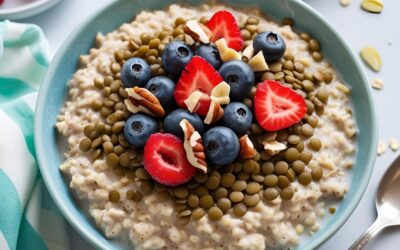A large population of Indian origin are vegetarian and do not eat meat. Vegetarians are considered to be Carbohydrate rich and so managing diabetes on a vegetarian diet can be challenging, but the right diet can make a big difference. One effective option is a vegetarian diet. Packed with nutritious foods, a vegetarian lifestyle offers many benefits for blood sugar control and overall health. By focusing on plant-based foods, you can help stabilize your blood sugar levels, support heart health, and maintain a healthy weight. In this guide, we’ll explore how a vegetarian diet can help manage diabetes and provide practical tips for making the switch to a healthier, plant-based Vegetarian Diet Meal Plan for Weight Loss
Understanding Diabetes
Diabetes comes in two main types: Type 1 and Type 2. In Type 1, the body doesn’t make insulin, the hormone that helps move sugar (glucose) into cells for energy. In Type 2, either the body doesn’t produce enough insulin or becomes resistant to it, which makes blood sugar levels rise. Keeping blood sugar in check is really important for people with diabetes because if it gets too high, it can cause serious problems like nerve damage, heart disease, and kidney issues. What we eat plays a big part in controlling blood sugar, and a carefully planned vegetarian diet can provide the nutrients needed to help keep it steady.
Why Consider a Vegetarian Diet for Managing Diabetes?
Considering a vegetarian diet for managing diabetes can be beneficial for several reasons. First, plant-based foods are often high in fiber, which helps regulate blood sugar levels by slowing down digestion. Second, a vegetarian diet typically contains less saturated fat, reducing the risk of heart disease, which is crucial for those with diabetes. Additionally, it can support healthy weight management, making it easier to control blood sugar. Overall, a well-planned vegetarian diet offers the nutrients needed to help effectively manage diabetes and improve overall health.
Key Nutrients to Focus on in a Vegetarian Diet for Diabetes
- Protein Sources:When following a vegetarian diet for diabetes, it’s important to get enough protein. Plant-based protein sources such as lentils, beans, tofu, and tempeh are great options. These foods provide protein without the unhealthy fats found in some animal-based protein sources, making them excellent choices for maintaining blood sugar control.
- Healthy Fats: Healthy fats are an important part of a balanced diet for people with diabetes. Including sources like nuts, seeds, avocados, and olive oil can help support heart health, which is particularly important for people with diabetes. These fats can also help keep you full and satisfied between meals.
- Complex Carbohydrates: Not all carbohydrates are created equal. While simple carbohydrates like white bread and sugary snacks can cause blood sugar spikes, complex carbohydrates found in whole grains, starchy vegetables, and legumes release glucose slowly. These foods have a low GI and can help keep blood sugar levels more stable.
Foods to Avoid on a Vegetarian Diet for Diabetes
Although a vegetarian diet can be very beneficial for managing diabetes, it’s still important to avoid certain foods. Many vegetarian foods can be high in sugar and unhealthy fats, which can negatively impact blood sugar levels.
- High-Sugar, Processed Vegetarian Foods: Vegetarian or not, foods high in added sugars, such as sugary snacks, baked goods, and sweetened beverages, should be limited. These foods can lead to rapid spikes in blood sugar, making diabetes management more difficult.
- Refined Grains: Refined grains, such as white bread, white rice, and pasta, are quickly digested and can cause rapid increases in blood sugar. Instead, opt for whole grains like brown rice, quinoa, and oats, which provide fiber and help stabilize blood sugar.
- Foods High in Unhealthy Fats: While healthy fats are important, foods high in unhealthy fats, such as deep-fried foods, should be avoided. These foods can contribute to weight gain and insulin resistance, making it harder to manage diabetes.
Tips for Transitioning to a Vegetarian Diet
Gradual Transition
If you’re new to a vegetarian diet, start by gradually reducing your intake of animal-based foods while increasing plant-based options. This allows your body to adjust to the change, making the transition smoother.
Meal Planning
Meal planning is essential to ensure you’re getting a balanced diet with all the nutrients you need. Focus on including a variety of vegetables, legumes, whole grains, and healthy fats in your meals.
Monitor Blood Sugar Levels
As you transition to a vegetarian diet, it’s important to monitor your blood sugar levels closely. This will help you understand how your body responds to different foods and make adjustments as needed.
A vegetarian diet can be a powerful tool for managing diabetes by helping to control blood sugar levels, provide essential nutrients, and support overall health. By focusing on low-GI foods, fiber-rich ingredients, and healthy fats, you can improve your blood sugar management and reduce the risk of diabetes-related complications. Before making any major dietary changes, be sure to consult with a healthcare provider or dietitian to ensure that the new diet meets your individual needs. Also, in case you want to know How a Vegetarian Diet Can Support Your Thyroid Health, reach out to LiveLifeMore, a trusted resource for holistic health solutions.




